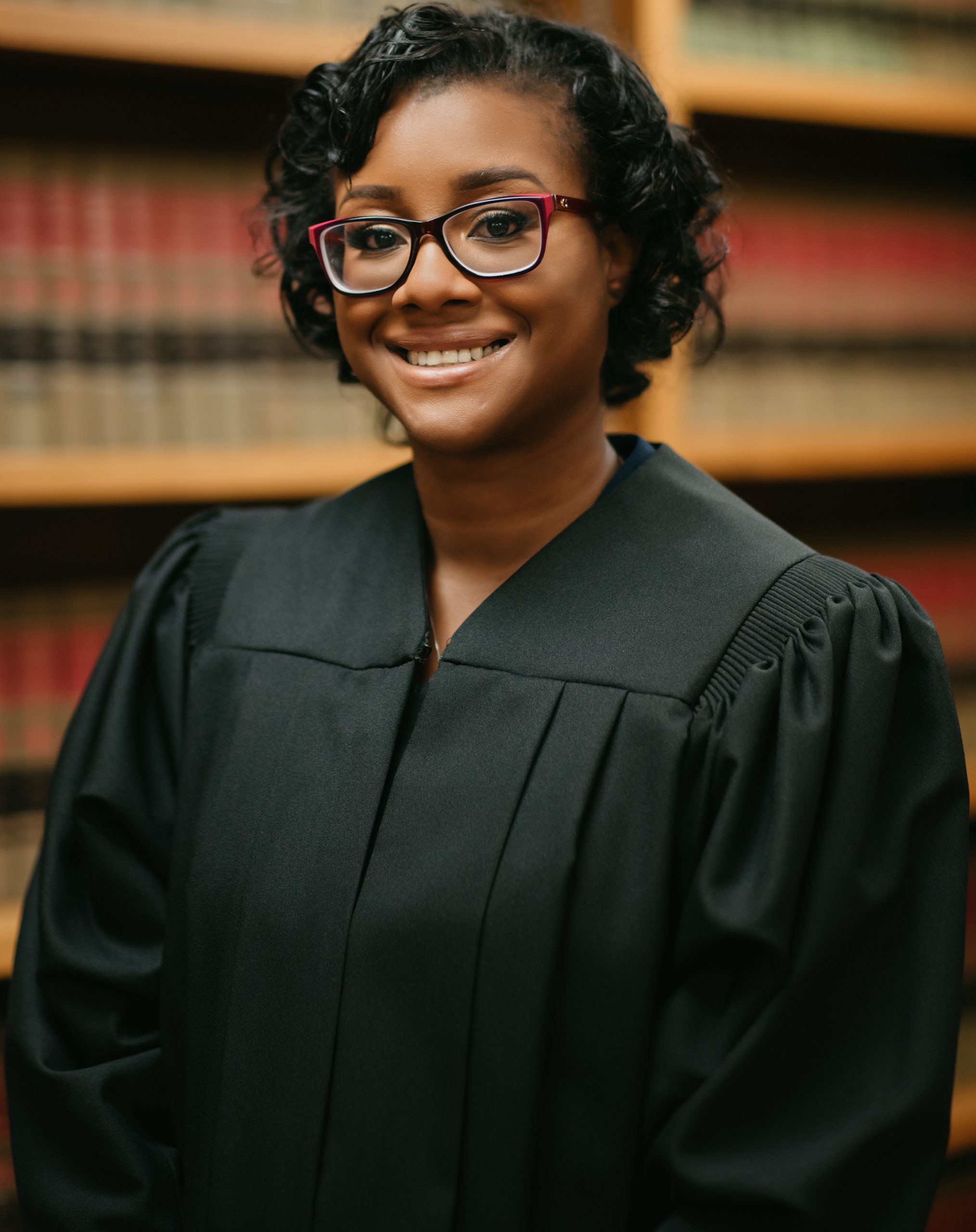Milwaukee County Circuit Court Judge Kori Ashley will speak about “The Letter from the Birmingham City Jail” in her address as part of the 32nd annual Rev. Dr. Martin Luther King Jr. prayer service.
The prayer service will take place Saturday, Jan. 14, at All Saints Catholic Church, 4051 N. 25th St., Milwaukee. The service begins at 1:30 p.m. with a musical prelude, followed by the 2 p.m. prayer service. Archbishop Jerome E. Listecki will offer a blessing for the event.
Born and raised in Milwaukee, Judge Ashley earned her law degree from UW Law School and was in private practice for four years before joining Legal Action of Wisconsin in 2016. She became a leader in Legal Action’s “Road to Opportunity Project,” where she worked to remove her clients’ barriers to employment through expungement, driver’s license restoration and record correction so that clients had better access to gainful employment.
On June 6, 2020, Gov. Tony Evers appointed Ashley to serve as a Circuit Court Judge, Branch 19, and she presides over a general felony court. She lives in the Enderis Park neighborhood with her husband and two children.
On April 12, 1963, Dr. King and nearly 50 other protestors and civil rights leaders were arrested after leading a Good Friday demonstration as part of the Birmingham campaign, designed to bring national attention to the brutal, racist treatment suffered by blacks in one of the most segregated cities in America. For months, an organized boycott of the city’s white-owned businesses had failed to achieve any substantive results, leaving King and others convinced they had no other options but more direct actions, ignoring a recently passed ordinance that prohibited public gatherings without an official permit.
For King, this 13th arrest became one of the most important of his career. After his arrest, a friend smuggled in a copy of the local newspaper, which included a letter written by Christian and Jewish religious leaders criticizing King and his demonstrations.
His 7,000-word letter from the Birmingham Jail returned the criticism to the nation’s religious leaders and more moderate-minded white Americans, castigating them for sitting passively on the sidelines while King and others risked everything agitating for change.
History was always Ashley’s favorite subject in school, a topic she carried on to her college years. She gravitated toward the subject because she realized that history informs our path forward.
“That is especially true when looking back and reflecting on the great legacy of Dr. Martin Luther King Jr. Dr. King and countless other leaders in the civil rights movement who fought tirelessly to reveal the disparities and inequities of the lives between black and white people toiling on the front lines of the equal rights fight to gain equal rights for all,” she said. “According to Dr. King in his letter from the Birmingham jail, ‘whatever affects one, directly, affects all indirectly.’”
Our nation is stronger when we are all able to equally enjoy the promises of the Constitution, explained Ashley. She added that Dr. King’s letter reminds us that it was not his vision of racial equality he fought for: it was God’s vision.
In her talk, Ashely plans to focus on issues that troubled Dr. King, which were discussed in his letter and remain relevant today.
“The first is the danger of complacency and its role in maintaining the status quo — tactics and strategies designed to suppress the vote of black, brown and moral people,” she said. “Dr. King, in his letter, talked about standing in the middle of opposing forces — on one side, a group of black community members whose fatigue stifled their activism and resulted in complacency. The people lost themselves in the struggle and simply accepted tactics and strategies employed to introduce resegregation and enact laws that codified them into law.”
Ashley will discuss how these parallels exist in Milwaukee’s black community, leaving a legacy of no promise or belief in the vote because, she explained, they have not seen evidence of how their vote will have any discernible impact on their individual lives.
“I will also briefly discuss Dr. King’s analysis of just versus unjust laws as it parallels voting rights and its impact on modern society. Finally, I will talk about what Dr. King described as the ‘constructive nonviolent tension’ that he and other members of the civil rights movement created in order to spur dialogue, negotiation and, ultimately, change,” she said. “Dr. King’s call to action back in 1963 is still being answered today, and I look forward to sharing my thoughts about how his Letter from the Birmingham Jail continues to inspire me and others.”
For questions or additional information, contact Shanedra Johnson at johnsons@archmil.org or 414-758-2215.

Judge Kori Ashley
